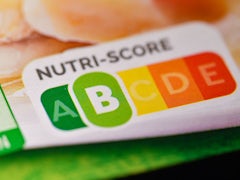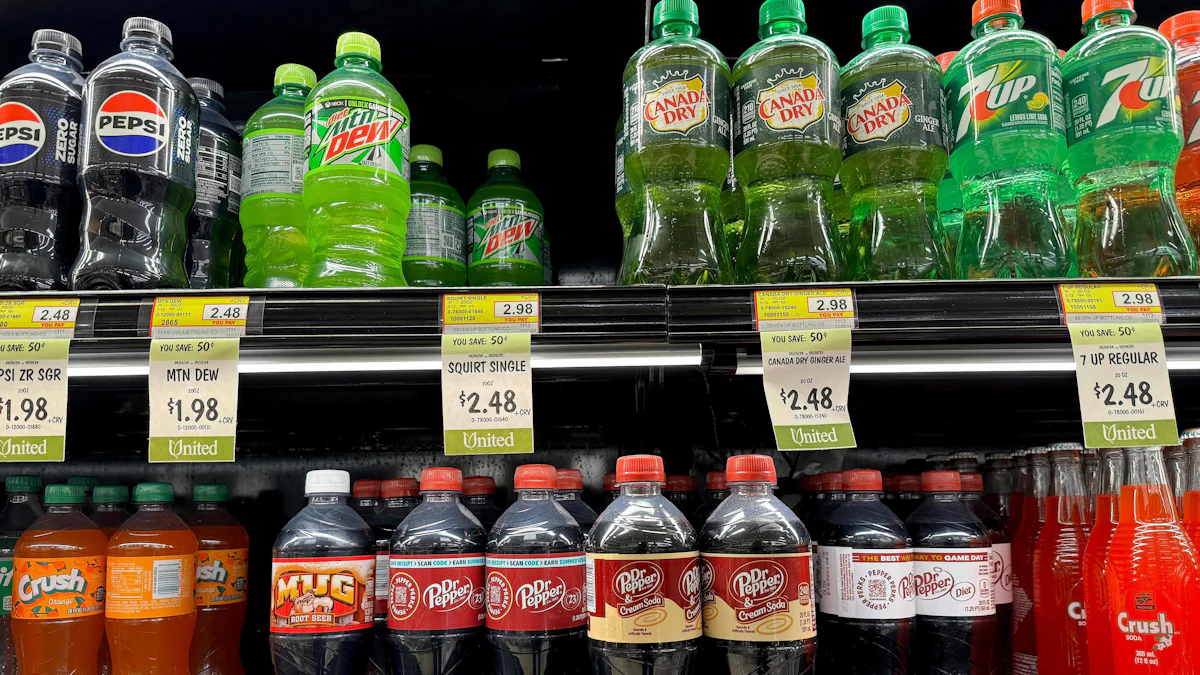At their recent conference, the consumer protection ministers from nine federal states spoke out in favor of a measure that professional associations in Germany have long been calling for: introducing a tax on sugary soft drinks in order to reduce their consumption. The World Health Organization (WHO) also strongly recommends taxes or similar levies on sugary drinks. What is known about their effects.
What is so problematic about sugary drinks?
Sugar contributes to the development of obesity and type 2 diabetes. Soft drinks in particular tempt people to consume a lot of sugar and calories because their consumption does not leave them feeling full. These drinks also generally have no nutritional value. This means that they often contain additional and useless calories.
The German Nutrition Society recommends that adults with a daily calorie requirement of 2000 kilocalories consume a maximum of 50 grams of sugar per day. Kindergarten children should only consume half that amount. Market checks by consumer centers have shown that many drinks are so heavily sweetened that children exceed the daily maximum amount with just half a liter.
Sugar also promotes tooth decay. The particular problem with soft drinks is that many people drink a few sips of them frequently, says Konstantin von Laffert, Vice President of the German Dental Association. “The teeth are then washed with sugar solution over long periods of time.”
Bacteria in the mouth convert sugar into acids, which then attack the teeth. Soft drinks increase this effect because they contain acidic components in addition to sugar. So if you constantly sip soda or cola, you maintain an unfavorable acidic environment in your mouth for many hours of the day. This also happens to small children who suck on a bottle of sugary drinks practically all day. In some cases, their teeth are badly damaged, which can sometimes only be treated under general anesthesia, says dentist von Laffert.

:Sugar: Sweet temptation, white poison
The organism needs it, but the crystalline powder has long been discredited. What dangers it actually brings and what experts say about brown sugar.
Where do such taxes already exist?
According to the WHO, by the end of February this year, 115 countries had introduced a tax on sweet drinks. These include most countries in Central and South America, some African countries and a number of European nations, including the UK, France, Italy and Portugal.
What consequences were observed?
Dozens of studies from different countries have now examined the effect of the taxes. A meta-analysis in the journal Jama Network Open In 2022, the WHO summarized more than 80 of these studies and showed that the taxes actually reduce sales of sweet drinks. Specifically, the analysis found that for every ten percent price increase, sales fell by an average of 15 percent. The WHO, which published new guidelines on food taxation a few days ago, came to almost identical results, which also included an evaluation of previous research literature.
It is well documented that consumers react sensitively to price increases when they do not consider the product necessary and there are sufficient alternatives. These factors appear to come into play when it comes to the price of sweet drinks. Studies have shown that buyers of sugary drinks see coffee, tea, milk or water as an alternative option. They therefore turn away from the sweet products relatively easily.
This is apparently also clear to the producers. In Great Britain, manufacturers have had to pay a tax on sugary drinks since 2018. Many companies clearly did not consider the possibility of passing this tax on to consumers and increasing prices to be a good option. Instead, they reduced the sugar content in the drinks to bring it below the tax limit. The result: Among soft drinks, the proportion of drinks subject to the tax because they were too sugary fell from the expected 50 percent to 15 percent.
Such recipe changes are another desired effect of sugar taxes. However, there is hardly any good data to support them elsewhere.
How do the taxes affect the Health out of?
In fact, this question cannot yet be answered. This is also because the taxes in many countries have not been in force long enough for health changes to be evident, writes the WHO in its guidelines. Nevertheless, the authors of the guidelines warn against having too high expectations. A single measure is unlikely to have a very large impact. Tax and pricing policy must therefore be part of a comprehensive package of measures in order to have a greater impact.
Are there any negative effects?
Neither the meta-analysis nor the WHO guidelines were able to prove any negative effects of the tax. The studies evaluated did not provide any indication that jobs would be lost. The WHO also says that high costs for implementing the measure are not to be expected. This means that the tax should at least be cost-effective, i.e. its benefits justify the costs. It is possible that it could even save costs in the health system if it helps prevent illnesses.

:Ten insights into the Nutri-Score
A sugary cereal gets the best rating? Does the labeling actually work? About old misunderstandings and new experiences with food labeling.
Is the tax unfair?
Higher prices hit people with less money harder. Their freedom of choice is thus more restricted, which can be seen as unfair. On the other hand, however, these people would probably benefit the most in terms of health. In many countries, people with low incomes and education eat less healthily. In Germany, too, the national consumption study showed that people with a low socioeconomic status consume sugary drinks about three times more often than those with the highest social status. If the state helps them to eat more cheaply, more equal health opportunities and thus a little more justice would be created, argues the WHO.
How fair or unfair people find such taxes is likely to depend on what the additional revenue is used for. If it is invested in health programs or, in return, healthy food is exempt from tax, acceptance is likely to be greater.
Some countries therefore combine the beverage tax with a tax reduction on fruit and vegetables. German trade associations have also been calling for this approach for years.
What other options are there?
According to a review article published in 2019 by the particularly strict Cochrane Collaboration, traffic light labels such as the Nutri-Score have also proven to be comparatively effective in curbing the consumption of sugary drinks. Marketing measures in supermarkets and restaurants that highlight healthy drinks were also described as moderately effective. The authors found no evidence that voluntary commitments by manufacturers led to less sugar in soft drinks.
In Germany, the industry has so far relied on voluntary action. Among other things, it has committed to reducing the sugar in sweet drinks by 15 percent between 2015 and 2025. However, an interim assessment by German researchers showed that the manufacturers are far from the target. By 2021, the sugar content had only decreased by two percent.





